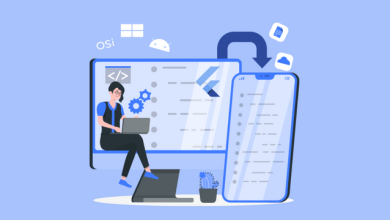Difference Between Data Science and Artificial Intelligence

Data science and artificial intelligence (AI) are two different fields of study sharing some similarities. Both operations have unique roles in business growth. This article intends to explain the difference between data science and artificial intelligence.
Data Science: What Is It?
Data science is a scientific approach applied to data collection, cleaning, processing, and analysis. Its goal is to understand data trends and make predictions about the world.
This broad term (data science) encompasses many different types of jobs. Therefore, businesses need a multidisciplinary team specializing in data science services. A data science firm includes statisticians and machine learning engineers.
If one is looking to learn to become a data scientist and wants to work with such companies the best way to go about this is to take up some kind of Data Science Course
Primary Scope of Data Science: Forecasting
Data scientists know various statistical methods such as regression analysis and clustering algorithms. They use these techniques on many real-world datasets.
Data scientists predict the future via predictive models in data analytics services. Often, their goal is to find reliable correlations between variables. Usually, data science involves the extensive use of advanced statistical software packages.
R and python are some of the most popular programming languages and libraries in data science services. They differ from artificial intelligence services as both solutions serve unique business objectives.
What Is Artificial Intelligence in Business Management?
Artificial intelligence or AI is a field of computer science with a business automation scope. It trains artificial agents that can perceive and act to simulate human intelligence.
In other words, companies use AI to make machines perform the tasks requiring human intervention under conventional work conditions. Also, consider the following categories of artificial intelligence.
- Weak AI focuses on one intelligent task.
- General AI competes with human intellect.
- Strong AI must surpass humans in intelligence, logic, self-awareness, and creativity.
Primary Scope of Artificial Intelligence: Automation
If a machine thinks like a human, you can hire it to shoulder the repetitive tasks. Therefore, your human resources can focus on more complicated or dynamic business challenges.
AI is immune to human health risks. It does not take unspecified leave. AI works without needing food, sleep, space, or motivation.
Humans would love a virtual PA (personal assistant) to streamline their daily routines.
Automating your low-complexity business operations is the top priority of artificial intelligence. Indeed, this focus area varies from the forecasting speciality in data science.
Difference Between Data Science and Artificial Intelligence
1 | Concept is Not the Same
This is a method of extracting knowledge from data and applying it to solve problems. But artificial intelligence is the science of making computers behave like humans. It is a conceptual difference in the data science vs. artificial intelligence argument.
2 | Specific Procedure
Data science and artificial intelligence (AI) are different fields. Their workflows and problem-solving methodologies are not the same at all. You can compare their typical process flow charts side by side. Though some overlaps exist, data science differs from AI for the most part.
3 | Outcomes Are Unique
You can use it to calculate risks and market dynamics with the help of data analytics services. However, artificial intelligence services involve machine learning and neural networking to recreate humanity’s cognitive skills.
4 | Job Descriptions Do Not Overlap Much
Businesses describe different skill criteria for data science services and AI development teams. Python is a great language used for AI and data science. But data scientists use it for advanced statistics. Yet, AI employs R or python for training and modifying neural networks to enhance their learning skills
5 | Final Applications Are Not Similar
A mature data science operation warns you about the rewards and risks in corporate decision-making. Simultaneously, an evolving AI identifies faces, voices, and human speech to facilitate employee productivity.
Conclusion
Data science and artificial intelligence help companies increase their competitive strengths. Their main difference lies in the scope and objectives of the operation.
After all, it focuses on how humans use computers to process and analyze information. It introduces you to the infinite possibilities of the future.
Nevertheless, AI is all about programming computers to think like humans. Also, data scientists focus on statistics and mathematics rather than programming algorithms for machine automation.
A leader in data science services, SG Analytics, supports international enterprises with actionable and data-driven business insights across multiple industries. Contact us to learn how your growth strategy can leverage our extended analytical capabilities.




